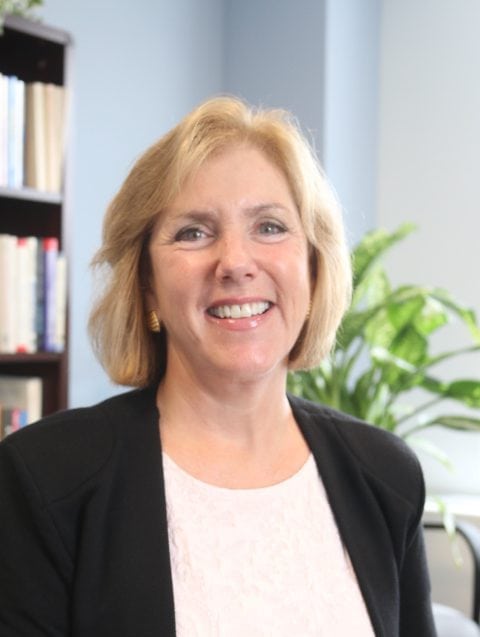As 2017 comes to a close, I’ve been thinking about all the things that have happened or not happened in the past twelve months with regard to education, youth, and workforce policy and its impact on AYPF’s work in national education policy. To be truthful, I’m having a hard time making sense of it. As a longtime observer and participant in national policymaking, I see an environment and climate that is unlike any I’ve seen before. Policy decisions are seemingly made in a vacuum with only a few people or organizations providing input, and many of them are neophytes with little experience or perspectives very different from most of us in the education and youth policy community. Issues that should be discussed are ignored as the crisis “du jour” takes over our screens. And many pressing education, youth, and workforce policy issues are just not on the agenda of this Administration.
I know I’m not the only person to feel like this. Often when I meet a colleague for coffee or lunch, we say, “Do you want to talk about what’s happening at the White House?” And most times, we say, “No, let’s focus on something positive.”
So in that vein, despite all the craziness of 2017, I’m going to focus on a few positive stories that we were able to share with policymakers in the hopes that they would use them to inform and improve education, youth and workforce policies.
Early in 2017, AYPF organized a study tour to the Charleston, South Carolina area to learn how rural schools are using deeper learning to advance equity and prepare students for college and careers. The I-95 “Corridor of Shame” in rural South Carolina is characterized by high illiteracy and high unemployment, yet within this corridor, two school districts are working to transform their community into a “Corridor of Innovation.” They are accomplishing this with the New Tech Network, a leading design partner for comprehensive school transformation, as well as the Riley Institute, based at Furman University. These two STEM-focused New Tech high schools, Scott’s Branch High School and Cougar New Tech, will graduate their first classes in 2017. The schools utilize four design pillars: culture that empowers students and teachers, project-based learning, broad use of technology, and school-wide deeper learning student outcomes. Additionally, dual enrollment with college courses and engagement with regional employers are helping to advance equity and opportunity for students, families, and the community by promoting student development, growth, and economic self-sufficiency.
Helping systems-involved youth get on a pathway to success is another area AYPF is passionate about. Young people involved in the juvenile justice or child welfare systems often face significant challenges to long-term success. Systems-involved youth may struggle with an array of education, workforce, social, and health barriers that hinder their path to postsecondary opportunities and a family-sustaining career. Over the past two years, AYPF developed a body of work identifying best practices and policies that support these youth by providing comprehensive, personalized, and wraparound supports. One sterling program, among many, that works with youth in the juvenile justice system is UTEC. UTEC serves youth ages 17-25 with the highest risk of impacting society through gang-related or other criminal involvement. UTEC focuses on reducing recidivism while increasing employability and educational attainment. Street workers play a major role in actively recruiting youth into the program. UTEC focuses not only on engaging youth in the community, but also youth that are incarcerated, so they have a productive place to go when they are released. Once at UTEC, youth participants have the opportunity to get involved in various social enterprises, work towards obtaining their GED, and actively participate in addressing issues in their community. The youth who participate in UTEC have been shown to have lower recidivism rates because of the personalized and comprehensive support and assistance they receive.
Another area to highlight, consistent with the theme of preparation for college and careers, is our work to ensure that first-generation students are able to enter and persist in postsecondary education. First-generation students face many challenges to postsecondary education success, including inadequate educational preparation, to social, emotional, financial, and family pressures. Guttman Community College, a two-year institution in the City University of New York (CUNY) system, serves many traditionally underserved populations: over half of Guttman students are first in their family to attend college, approximately 90% of the student body are students of color, and nearly 70% of students receive financial aid. Additionally, many Guttman students have high academic needs, receiving some of the lowest scores on the CUNY Assessment Test. To help address these challenges, first-year students are required to attend orientation and a Summer Bridge program. During this program, students are exposed to a rigorous college environment and community supports and begin taking college preparatory coursework with other peers in their cohort. First-year students also take two multiple-semester core courses: a City Seminar, in which students experience liberal arts in action by examining a relevant issue in New York City through the lens of multiple disciplines, and an Ethnographies of Work class, in which students study careers and workplace environments through critical examination of hiring, salaries, and other elements of the world of work. Graduation rates at Guttman have exceeded the national average almost three-fold.
These three examples are but a tiny proportion of the many programs that serve traditionally underserved youth across our states and communities. I draw hope from the policymakers and practitioners that have kept them in place and that support and sustain them. There is a lot to be positive about, and AYPF will keep shining a spotlight on the good work of our fellow citizens.
Peace in 2018.



